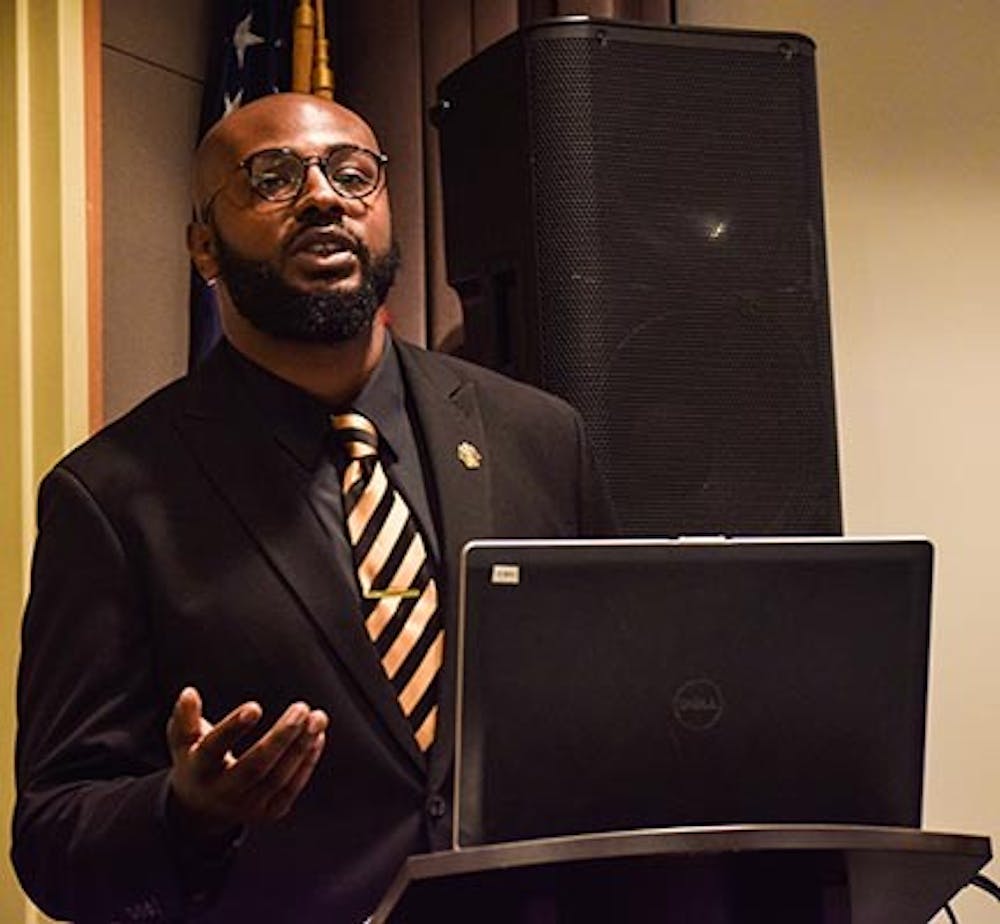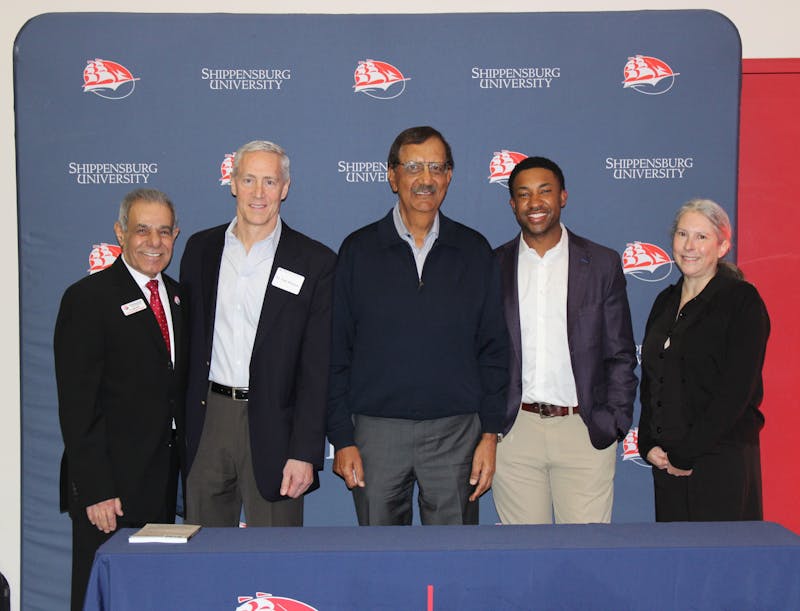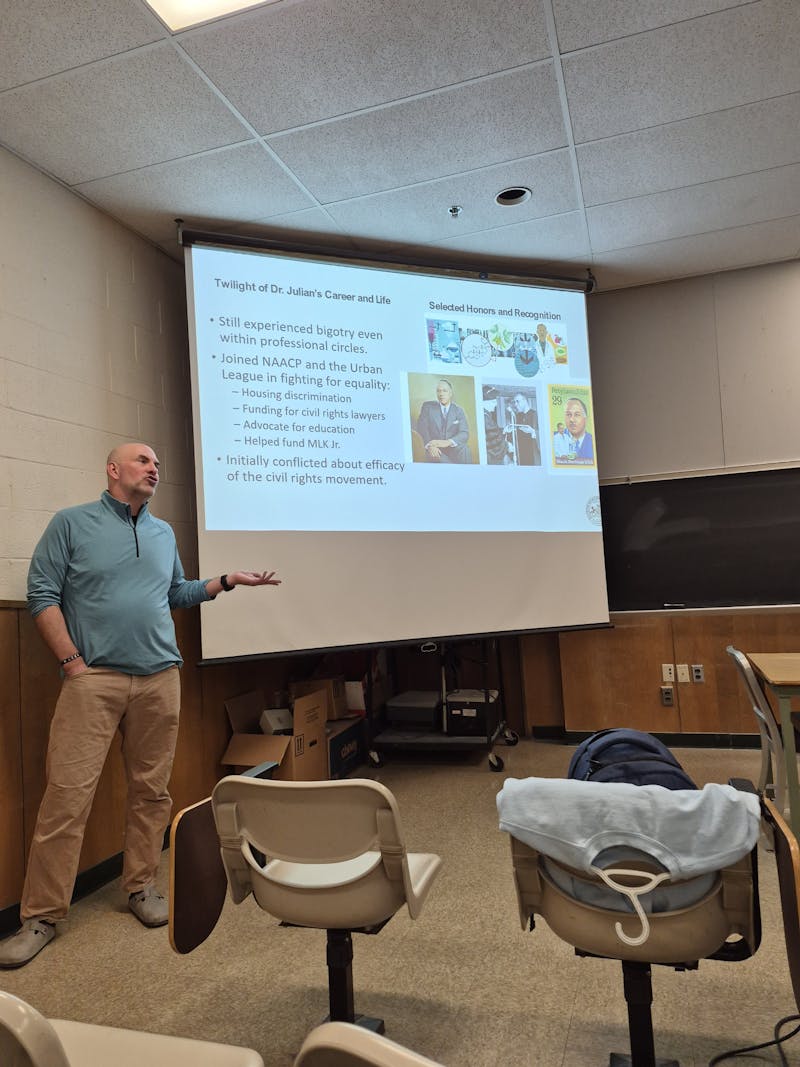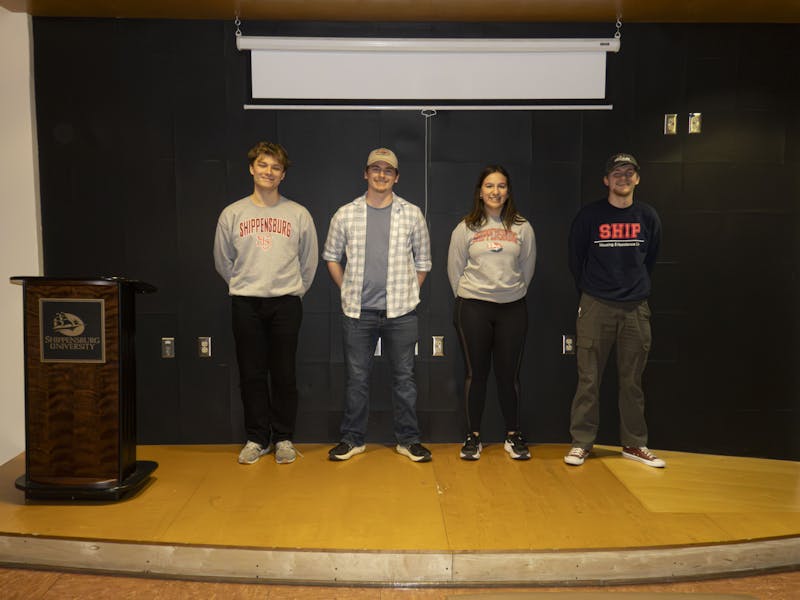A seminar looked to shed some light on the Black Lives Matter (BLM) movement, and explain what needs to be done to change society.
The Iota Sigma chapter of the Alpha Phi Alpha Fraternity Inc. hosted the seminar as a part of the fraternity's "Alpha Week: Resurgence" with events Sunday through Saturday. The presenation took place on Oct. 3 in Shippensburg University’s Orndorff Theatre.
"Ultimately, what we have done and are doing this week, is explaining how we show our support for the Black Lives Matter Movement,” said Rasheed Dandridge, an Alpha Phi Alpha member. “We’re creating forums and educating students on the issues as well as the history behind it. Engaging in the discussion of how do we address these issues, and finally executing and working towards rectifying the issues of injustices."
As soon as the seminar began, the screen read, "Why do we need this? We have already come so far?" From the Trans-Atlantic Slave Trade to the Civil Rights Act of 1964, there was no stone left unturned. The speaker, student Nicholas Johnson, related the BLM to the American Revolution. The colonies fought for their freedom from injustice, as is the African-American community today, he said.
"BLM to me means awareness to injustice in the African-American community,” said Prichele Pressley, a senior and criminal justice major. “It's been ignored and now it's coming to light."
Several situations where injustice occurred were highlighted throughout the evening, such as in Ferguson, Missouri, which students present were referring to as “ground zero” for the BLM movement.
Sixty-seven percent of Ferguson residents were ticketed from 2012 to 2014. Of those ticketed, 85 percent of vehicle stops, 90 percent of citations and 93 percent of arrests were African-American individuals.
Johnson discussed how human rights are being violated, in terms of police targeting races. The United Nations drafted the Universal Declaration of Human Rights, which was made by representatives from different legal and cultural backgrounds from all regions of the world.
There was an anger expressed through the room when Johnson said the U.N. had acknowledged violation of human rights before President Barack Obama did.
The Q&A session following the presentation lasted more than an hour. There was a lot of conversation and controversial issues brought to light in a room filled with racial diversity.





The Slate welcomes thoughtful discussion on all of our stories, but please keep comments civil and on-topic. Read our full guidelines here.